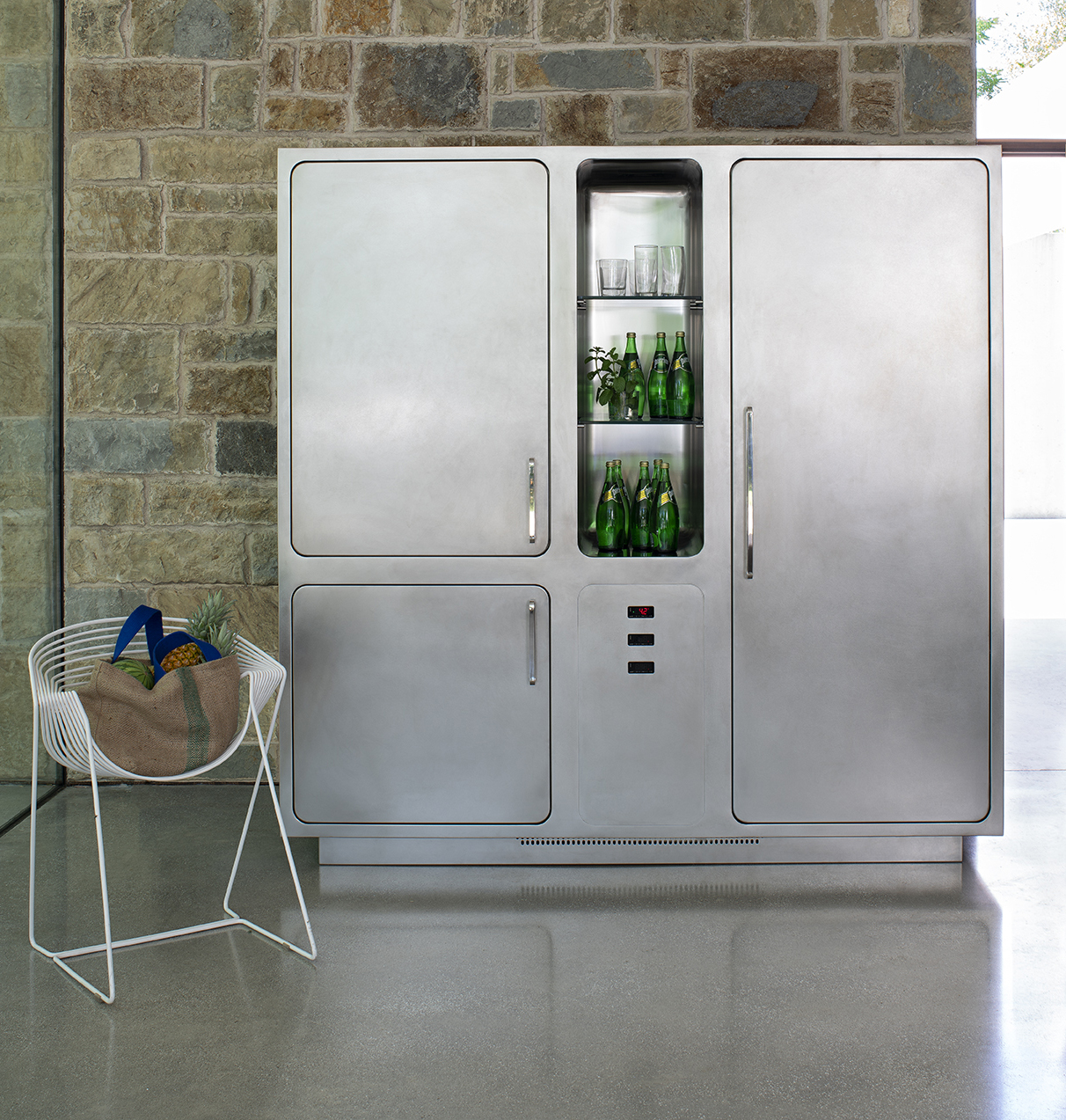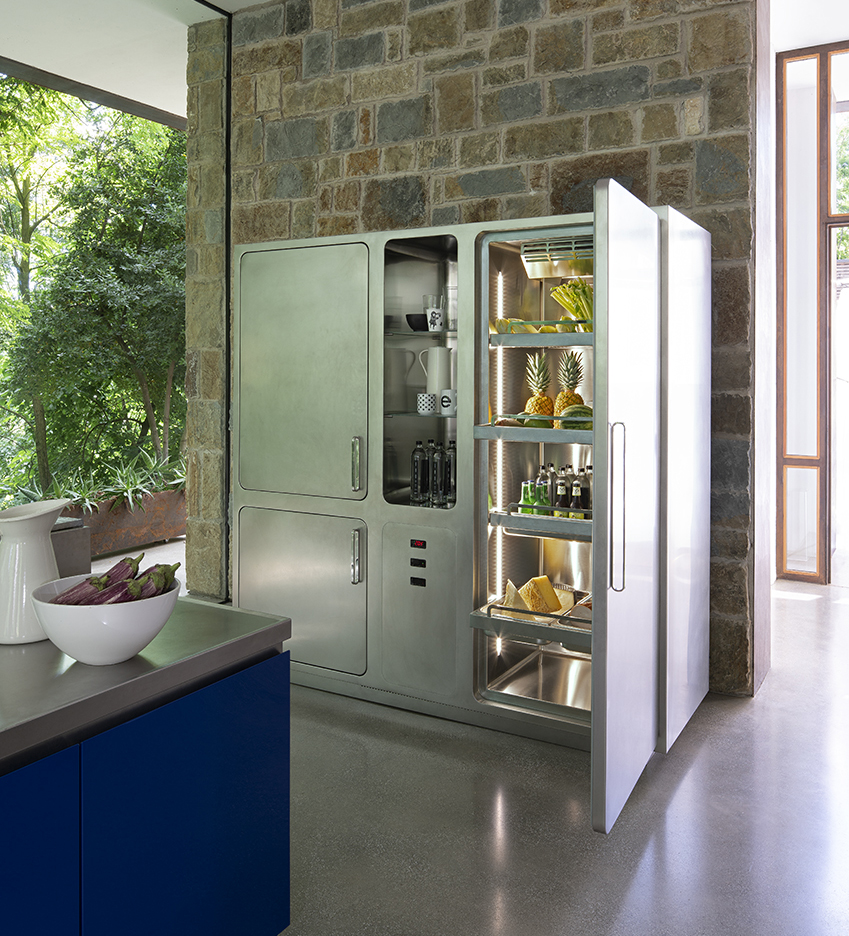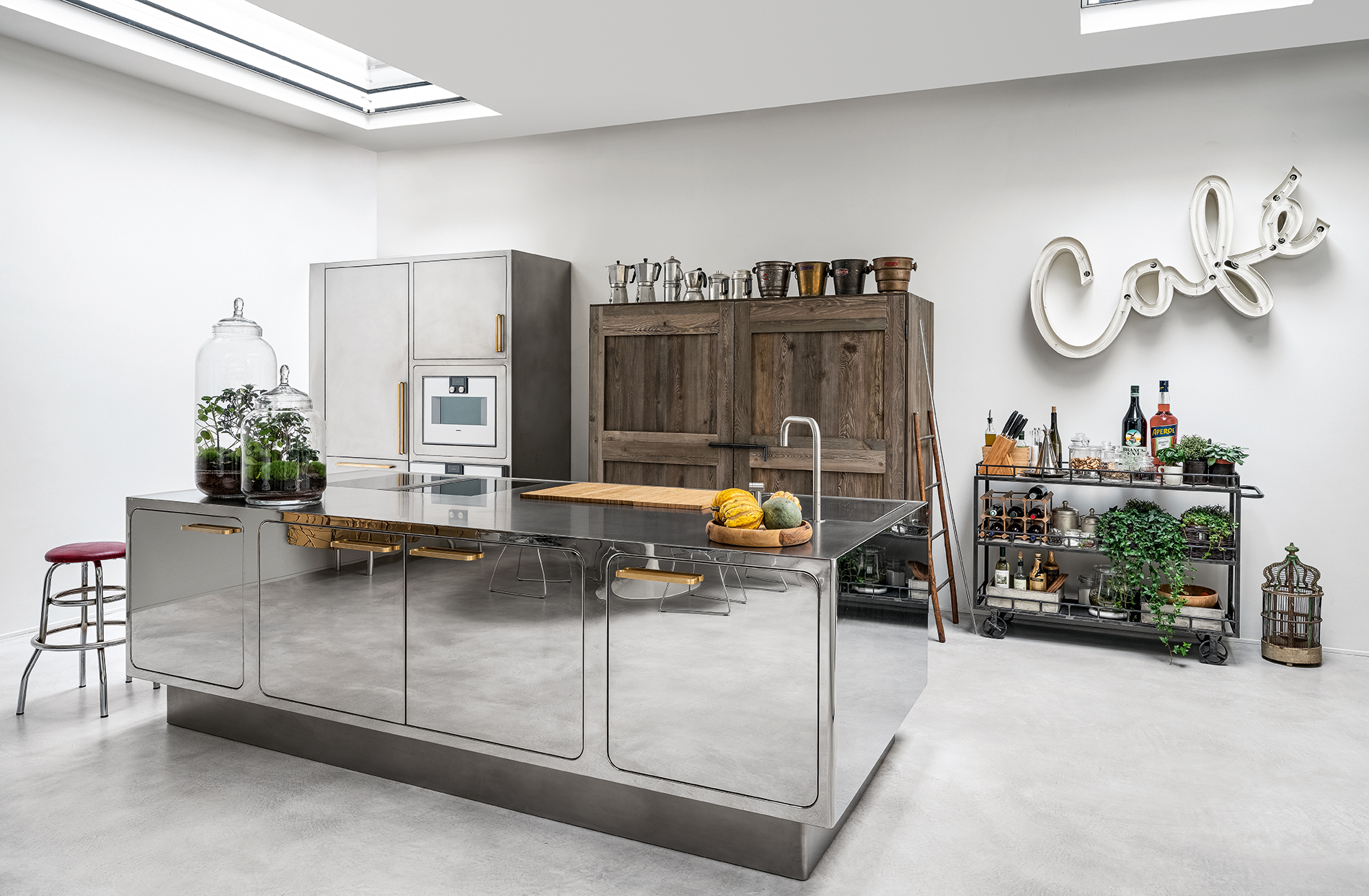
How to guarantee perfect hygiene at home. This is one of the hot topics being debated these days. The medical emergency caused by the outbreak of Covid-19 has in fact taught us how important it is to keep all the spaces we live in squeaky clean and sanitised. Especially in the kitchen, where the surfaces come into contact with food every day.
We can safely state that perfect hygiene in the home starts specifically in the kitchen. A kitchen that is insufficiently hygienic could contaminate food with various types of bacteria. So, what can be done? Stocking up on detergents and sponges is a good start… but at times this might not be enough. Choosing a kitchen is a little like buying a new car. We try to combine design with performance and the best user experience. This is why it is very important for the kitchen to be both attractive and functional: however, it should also offer maximum hygiene and be easy to clean!
In professional restaurant and catering kitchens, guaranteeing the highest standards of hygiene in the kitchen is not optional. It is a must. This is why the majority of canteen and restaurant kitchens are in stainless steel, a hygienic and absolutely antibacterial material. Moreover, wherever possible, joint-free worktops are preferred in order to reduce the build-up of dirt and to make cleaning easier.
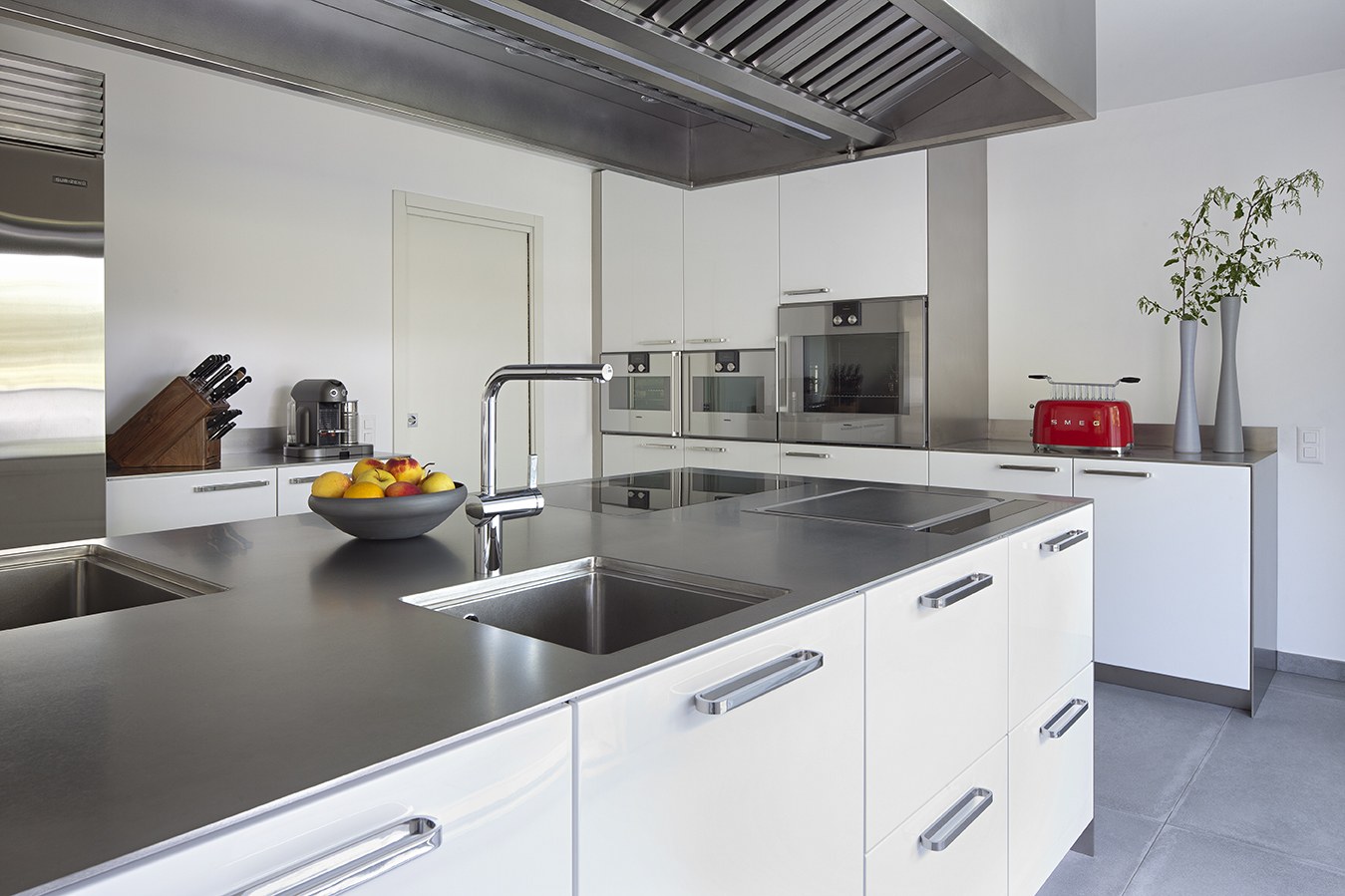
These characteristics are no longer solely the prerogative of restaurant kitchens.
Thanks to professionally-derived kitchens in fact, we can have the same solutions at home too: they are practical, hygienic and functional.
A dirt proof kitchen begins with carefully selected materials, which must be hygienic and easy to clean. The best ally in the kitchen is stainless steel. We suggest using stainless steel in the kitchen because not only does it guarantee superior corrosion resistance, but above all because it is biologically neutral and therefore antibacterial. This metal alloy does not affect the smell, colour and taste of food it comes into contact with. It does not release toxic substances which are harmful to our health. And, thanks to its smooth, non-porous surface, it is very easy to clean even with the most aggressive detergents.
Indeed, thanks to these unique characteristics, stainless steel is the most frequently used material for all those objects which come into direct contact with food and therefore need to be hard-wearing, antibacterial, and easy to clean: sinks, pots and pans, crockery and cutlery, etc.
Abimis only makes kitchens in AISI 304 stainless steel which guarantee superior standards of hygiene and cleanliness in the kitchen.
For a hygienic kitchen, you therefore need to implement solutions that can minimise these problems. Which ones? Our first piece of advice is to choose perfectly smooth, joint-free worktops. The seamless, smooth surface in fact prevents dirt and grime from building up, making for easier and more thorough cleaning. Our second tip is to prefer sinks that are welded to the worktops which, among other things, create a more stylish look because they make the entire block appear uniform and even.
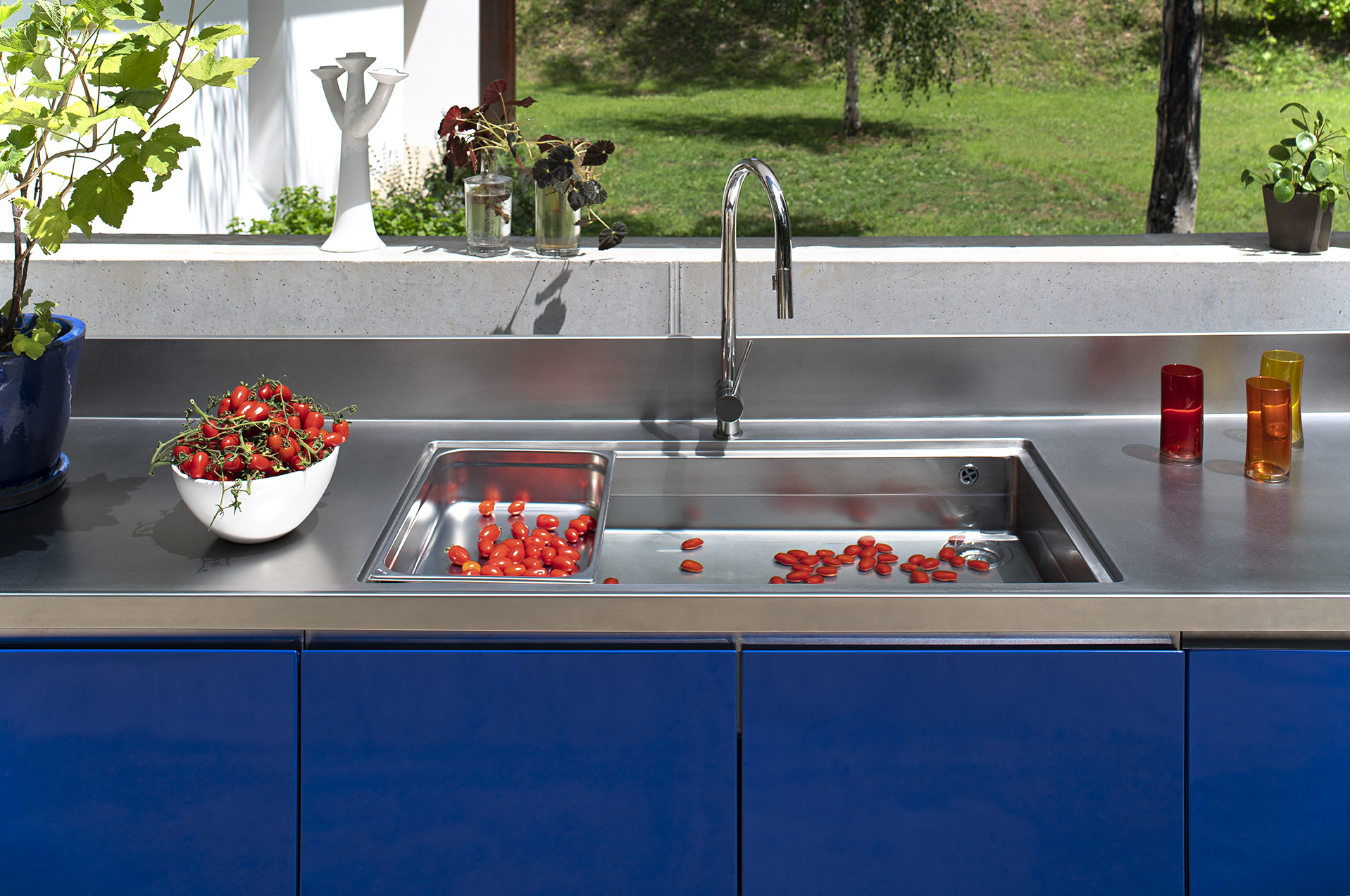
Beware also of dirt that accumulates inside the storage units, especially in the inner corners and on the bases of drawers, which are usually difficult to get to.
Professionally-derived kitchens by Abimis are welded without joints, and they have shelves that pull out completely. Moreover, the edges of inner storage units can be rounded. The Ego hinging pivot, which is patented by Abimis, is invisible and therefore very easy to clean.
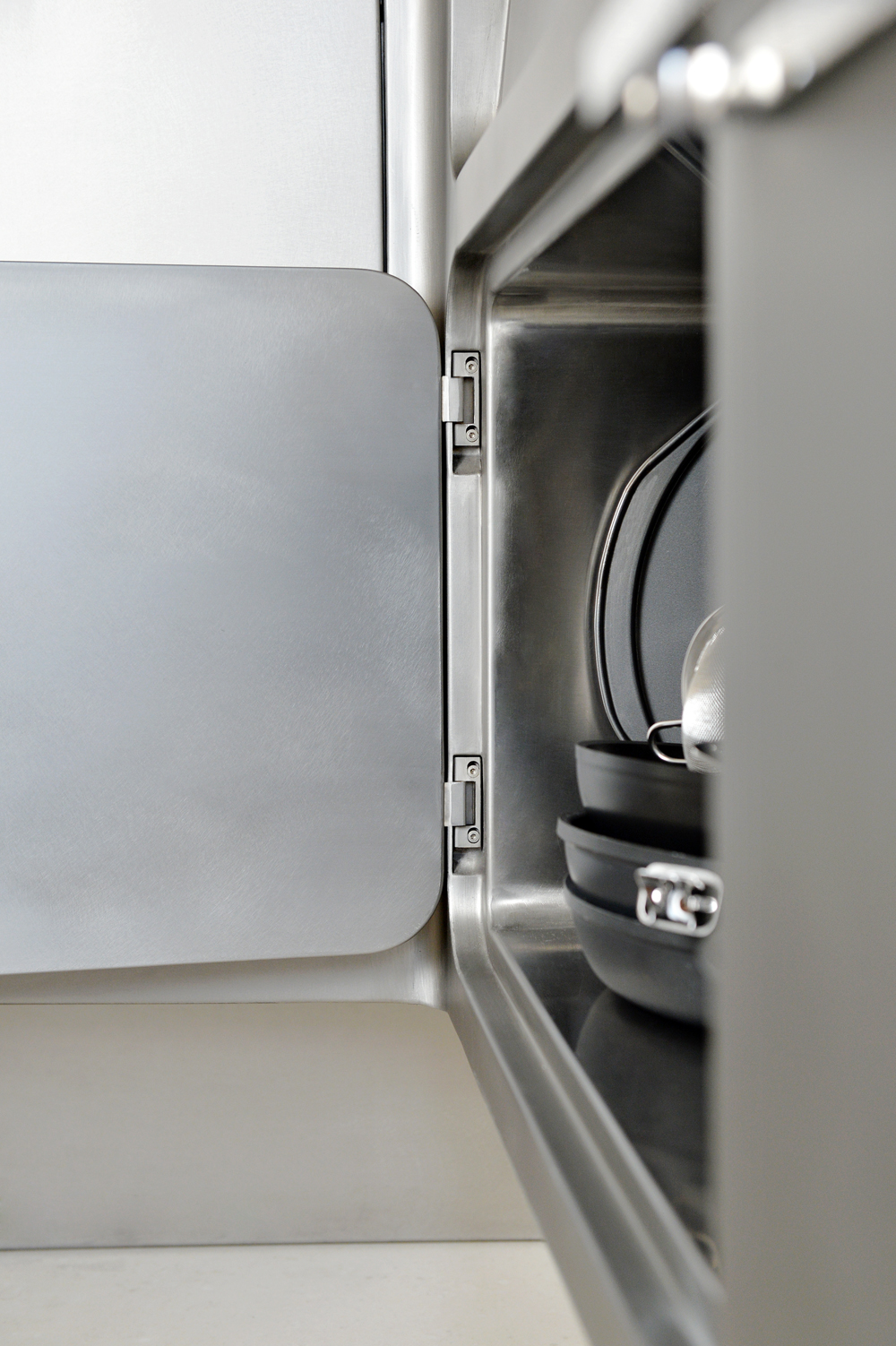
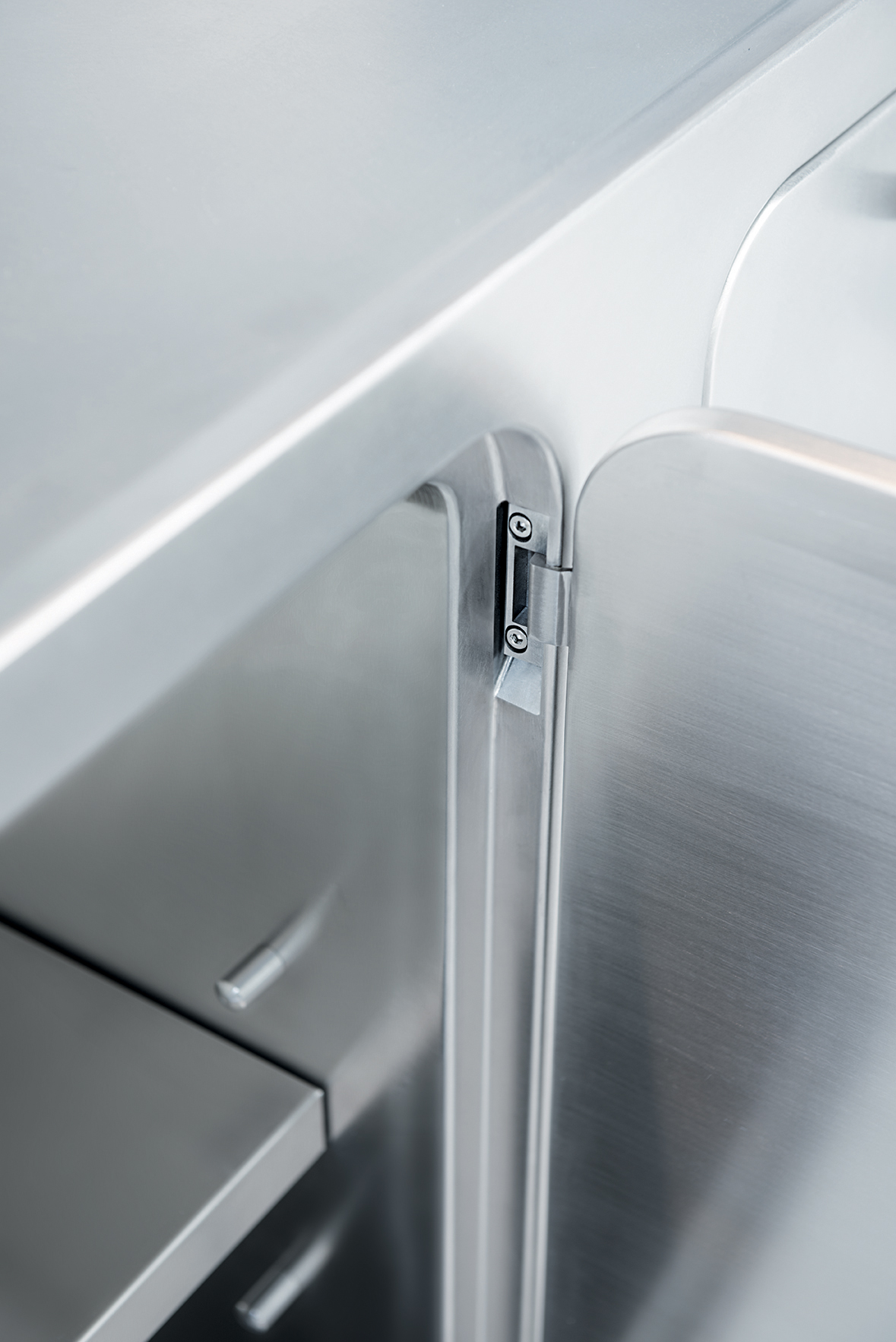
Perfect hygiene in the kitchen also stems from thoroughly clean household appliances. Dishwashers, refrigerators, ovens, and all the other small household appliances that help out in the kitchen, must be cleaned on a regular basis.
Dishwasher and cooker hood filters must be cleaned frequently. Blenders, slicers, food processors should be washed carefully every time they are used, because any food residue turns into the perfect host for mould and bacteria. Also, refrigerator shelves, walls and seals (the latter are often forgotten about…) should be sanitised frequently.
Certain household appliances come with self-cleaning systems. These include pyrolytic ovens which remove the dirt and grease built up on the oven cavity walls, on the racks and oven trays with cleaning cycles at extremely high temperatures. Or sterilisers with germicidal UV-C lamps, which disinfect utensils, crockery or cutlery safely and rapidly.
Since all Abimis kitchens are custom-made, they offer users the chance to include all sorts of household appliances, to ensure the best conditions for a hygienic and clean kitchen.
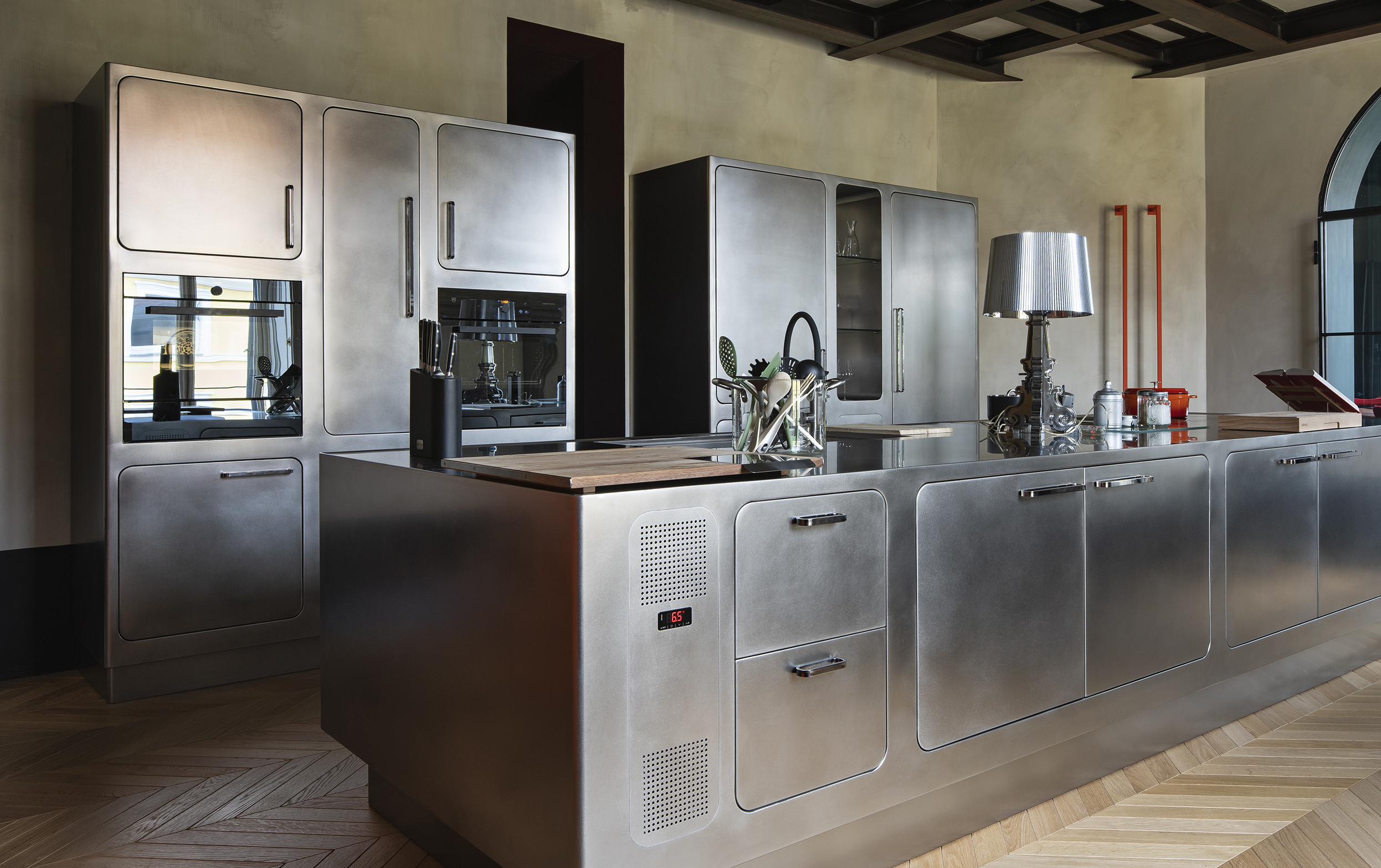
Perfect hygiene in the kitchen also stems from thoroughly clean household appliances. Dishwashers, refrigerators, ovens, and all the other small household appliances that help out in the kitchen, must be cleaned on a regular basis.
Dishwasher and cooker hood filters must be cleaned frequently. Blenders, slicers, food processors should be washed carefully every time they are used, because any food residue turns into the perfect host for mould and bacteria. Also, refrigerator shelves, walls and seals (the latter are often forgotten about…) should be sanitised frequently.
Certain household appliances come with self-cleaning systems. These include pyrolytic ovens which remove the dirt and grease built up on the oven cavity walls, on the racks and oven trays with cleaning cycles at extremely high temperatures. Or sterilisers with germicidal UV-C lamps, which disinfect utensils, crockery or cutlery safely and rapidly.
Since all Abimis kitchens are custom-made, they offer users the chance to include all sorts of household appliances, to ensure the best conditions for a hygienic and clean kitchen.
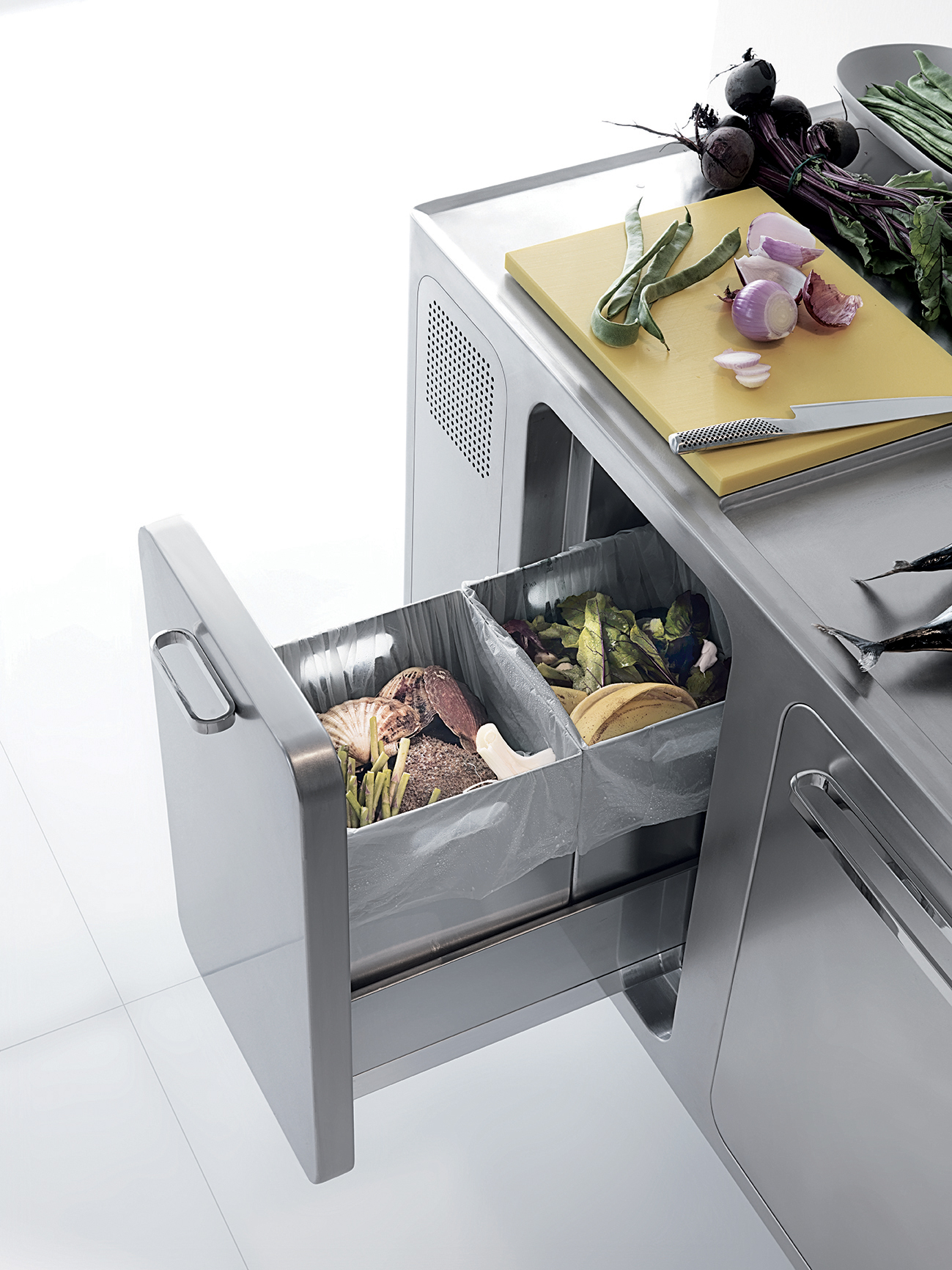
We know that one of the main causes of food poisoning is poor or incorrect food preservation and also what is commonly referred to as “cross-contamination”.
The first suggestion is therefore to organise shelves optimally. We can rely on the help of the Gastronorm system for this. This is a system of modular containers (originally conceived for professional kitchens, in fact) which makes it possible to organise your larder in the best possible way. By keeping food items separate from one another and avoiding unnecessary space wastage.
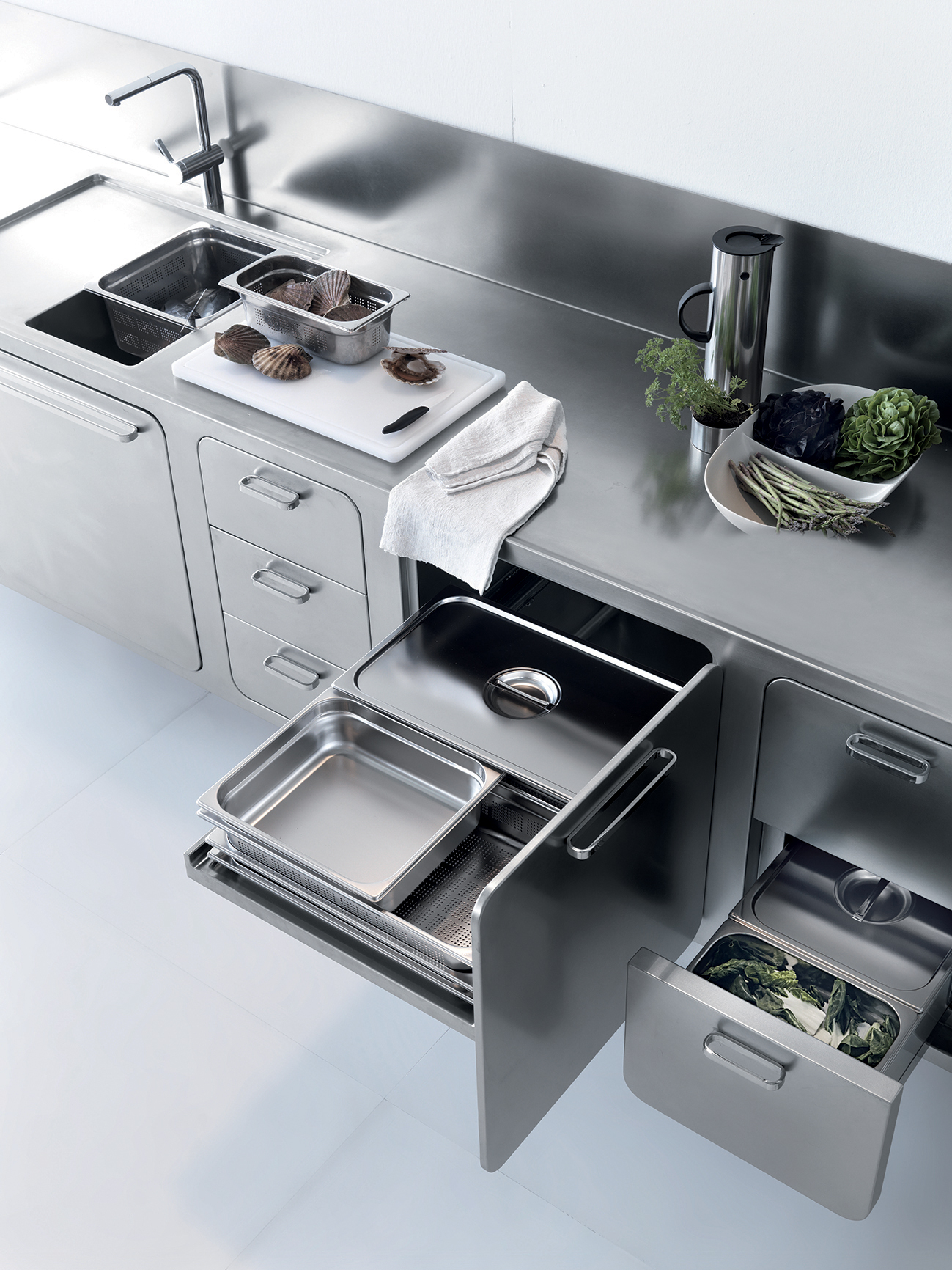
During food preparation tasks, you should not re-use the same utensils for different food items. For instance, we advise against using the same knife or the same chopping board for meat, cheese, fish or vegetables, without sterilising it or washing it thoroughly between one item and the next.
However, it is just as important to avoid cross-contamination in the refrigerator where many different food items are normally stored. Food items should be separated according to type, as well as storage temperature. Meat and fish should be placed lower down, where the temperature is lower. Eggs, cheese and yoghurt should on the other hand be stored at the top of the fridge. Vegetables should be stored in a dedicated compartment in order to retain a constant humidity rate. Last but not least, never leave uncovered food in the refrigerator. Keep food in airtight containers or wrap it carefully in cling film.
Keeping your kitchen hygienic therefore also means maintaining a clear separation between different food items and maintaining each item at the ideal temperature.
For improved food preservation, you would ideally need to use refrigeration systems with adjustable temperatures. This is an advantage which is now also available to us at home, thanks to professionally-derived kitchens.
Abimis has designed an innovative Cold Control System. This is a range of refrigerated tall units, equipped with independent compartments which can be adjusted to different temperatures. What’s more, all Abimis kitchens are compatible with Gastronorm dimensions, to make space organisation simpler.
